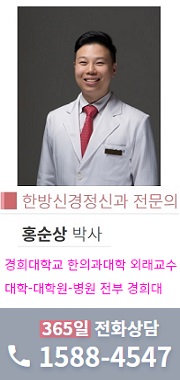http://www.trialsjournal.com/content/12/1/173
Background
Attention-deficit/hyperactivity disorder (ADHD) is a common neuro-psychiatric problem, affecting 7-9% of children. Pharmacological interventions are widely used with behavioral treatments in ADHD. Still, the origin of ADHD is unclear, limiting pharmacological effectiveness and making adverse effects common. The use of complementary and alternative medicine (CAM) has increased, especially for developmental and behavioral disorders, such as ADHD. CAM is used by 60-65% of parents of children with ADHD to relieve ADHD-associated symptoms and to avoid the side effects of conventional medication. Acupuncture has been widely used to treat patients with ADHD, but the available evidence of its effectiveness is insufficient. Our aim was to evaluate the effectiveness and safety of acupuncture in patients (both and each treatment naive and conventional therapy children) with ADHD (any subtype) compared to the waitlist control.
Methods/Design
This study is a waitlist controlled open trial. We used a computer generated randomization scheme. This randomised, controlled trial had two parallel arms (acupuncture, and waitlist group). Each arm consisted of 40 participants. The acupuncture group received acupuncture treatment two times per week for a total of 12 sessions over 6 weeks. Post-treatment follow-up was performed 3 weeks later to complement the 12 acupuncture sessions. Participants in the waitlist group did not receive acupuncture treatments during the first six weeks but were only required to be assessed. After 6 weeks, the same treatments given to the acupuncture group were provided to the waitlist group. The primary outcome of this trial included differences in Korean version of ADHD-Rating Scale (K-ADHD-RS) before randomization, 3 weeks and 6 weeks after randomization, and 3 weeks after completing the treatment.
Discussion
Subjective measurements, like K-ADHD-RS, are commonly used in ADHD. Although these measurements have adequate reliability and validity, lack of objective assessment in ADHD may lead to some disputes, like parental placebo effects. More objective measurements, like Computerized Neurocognitive function Test (CNT) in this study, are needed in ADHD trials. Furthermore, this trial will provide evidence for the effectiveness of acupuncture as a treatment for ADHD.
Trial Registration
Clinical Research Information Service (CRiS) KCT0000019
'임상연구 > ADHD (fin.)' 카테고리의 다른 글
| Treating attention deficit hyperactivity disorder with acupuncture: A randomized controlled trial (2015) (0) | 2015.12.09 |
|---|---|
| 현재 진행중인 ADHD 침치료 임상연구 관련해서 study protocol 논문이 Trials에 실렸습니다. (0) | 2011.08.07 |
| ADHD가 데이트폭력 및 가정폭력 위험성 높여...보다 조기에 장기적 치료계획 필요 (0) | 2010.12.31 |
| 침치료의 ADHD에 대한 치료 효과 임상 연구 홍보 전단지 (0) | 2010.12.31 |
| ADHD 침치료 임상 연구의 필요성 (0) | 2010.11.22 |


